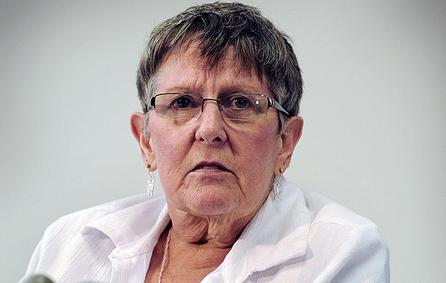VANCOUVER – Forcing sick patients to suffer through painful, agonizing deaths without the ability to ask a doctor to help them end their lives is akin to “torture,” a lawyer told the British Columbia Court of Appeal on Wednesday as he argued for the legalization of physician-assisted suicide.

Joseph Arvay, who represents several plaintiffs in a case that saw the law struck down last year, said the ban on assisted suicide leads some patients with terminal illnesses to end their lives early, because they know they won’t be able to seek a doctor’s help if they become debilitated later.
He said the federal government is forcing those patients to make a cruel choice between suicide and suffering.
“The choice for those people is, if they comply with the law, they will suffer, and for some of the people the suffering could be tantamount to torture,” Arvay told a three-judge appeal panel.
“So they’re given the choice: torture or early death. And some people will take the early death, because they were driven to that choice by the law.”
The appeal stems from a landmark decision out of the B.C. Supreme Court, which ruled last year that the federal law banning doctor-assisted suicide is unconstitutional.
The federal Conservative government appealed, arguing allowing doctor-assisted suicide would undermine the sanctity of life and put vulnerable and disabled patients at risk of being coerced to kill themselves.
The plaintiffs have argued the ban on doctor-assisted suicide violates the charter and discriminates against people with disabilities, because suicide is legal for people who are physically able to end their lives but assisted suicide for debilitated patients is not.
The B.C. Supreme Court case heard from witnesses who said their ill family members ended their lives but would waited if assisted suicide was an option.
Arvay rejected the federal government’s argument that legalized assisted suicide, even with strict regulations in place, would put vulnerable people at risk of being coerced to kill themselves or doing so in moments of weakness or depression.
He said there was no evidence to support that claim, and instead he said other jurisdictions where assisted suicide is legal have provided models of effective safeguards.
Arvay said the federal government is essentially arguing life must be preserved at all costs, regardless of the quality of that life or whether the person living it actually wants it to continue.
“Canada effectively faults people for choosing not to stick it out, but in doing so, it is making a judgment about what kind of life someone wants to have,” said Arvay.
“Canada says so long as you are breathing, so long as your heart is beating, so long as your brain is emitting the necessary signals, that’s life and you have to just accept it.”
The case was launched by several people, including Gloria Taylor of Kelowna, B.C. Taylor suffered from Lou Gehrig’s disease, or ALS, and the B.C. Supreme Court granted her an immediate exemption to seek assisted suicide. Taylor, 64, died last fall of an infection that was unrelated to her ALS.
The B.C. Supreme Court ruled the law must allow physician-assisted suicide in cases involving patients who are diagnosed with a serious illness or disability and who are experiencing “intolerable” physical or psychological suffering with no chance of improvement.
That decision has been suspended at least until the Appeal Court renders its decision.
The case is widely expected to end up at the Supreme Court of Canada, which last examined this country’s assisted-suicide ban two decades ago.
In 1993, the court upheld the law in a case involving Sue Rodriguez, who nevertheless died with the help of a doctor the following year.
Ottawa has also argued the B.C. Supreme Court was wrong to even consider the issue of assisted suicide because, the government says, the Rodriguez decision was final.
Arvay addressed that issue on Wednesday, telling the Appeal Court the interpretation of the charter has evolved significantly since the Rodriguez case, allowing the courts to have another look.
Several significant court decisions in the past two decades have concluded the charter prohibits laws that are “overly broad” and “grossly disproportionate,” Arvay said, and those issues weren’t considered by the top court in 1993.
He said society has changed, as well. There is growing approval for assisted suicide among the public, he said, as well as a growing number of jurisdictions around the world, including the Netherlands, Switzerland and two American states, that now allow the practice.
“Society 20 years ago is different than society today,” said Arvay.
“The world has changed in this area of physician-assisted dying in the last 20 years.”

Comments